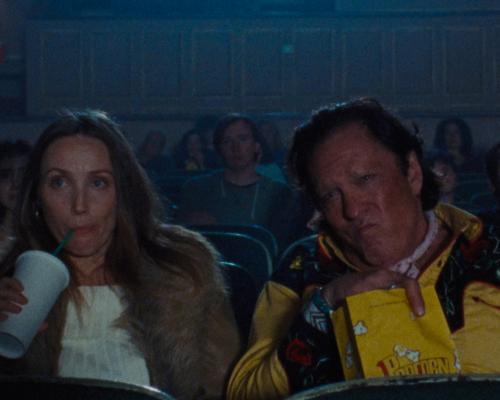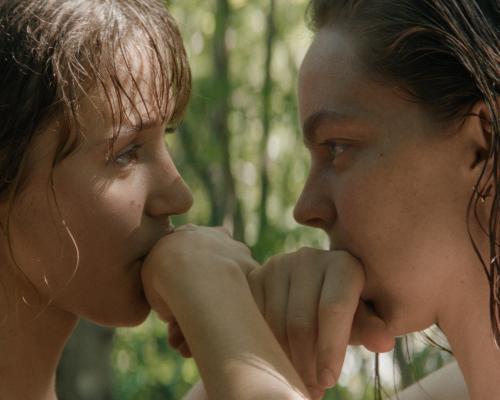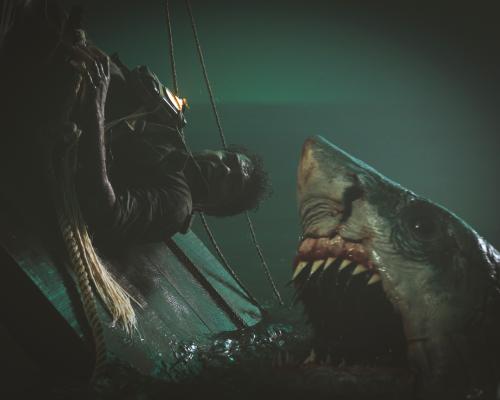
The late Michael Madsen makes his final, posthumous appearance as a boozy stuntman called Rex Fuel in this laidback ensemble film from feature first-timer Mas Bouzidi, a piece of moviegoing melancholy developed from the director’s short of the same title. Bouzidi gives us the time-honoured scenario of a smalltown movie theatre’s last day before closing down, resonantly named the Royal Alamo and showing for its last stand a couple of films on 35mm. The place has been stricken, of course, by the prevalence of digital streaming, although the wistful mood doesn’t seem too different from Bogdanovich’s The Last Picture Show from 1971, when Netflix wasn’t a problem.
The Royal Alamo is now a bittersweet place of memories whose spirit is perhaps epitomised by the two guys listlessly working at the concessions stand, and bickering amusingly like Kevin Smith’s Clerks. (“That movie where Johnny Depp played the creepy paedophile … ”, “Willy Wonka?”, “Yeah”) The title might imply that some concessions are metaphorical. Perhaps doing a dull job is a concession made in return for privileged access to the dream factory.
One is Hunter (Rob Riordan), who can’t believe he’s been wasting his life working here since high school and at one moment has the humiliation of having to serve a guy in his class who is now a big deal. Hunter does not, in fact, watch the movies showing at the Royal Alamo, although his final moments are not, in fact, too dissimilar from those of Olivia Colman in Sam Mendes’s sadness-of-cinema film Empire of Light. The other concessions guy is Lorenzo (Jonathan Lorenzo Price) who has a football scholarship at Tampa, Florida and so unlike all these other losers, he has a ticket out of this no-hope small town, but confides his own anxieties to Deana (Lana Rockwell) who sells tickets. The place is managed by grumpy Luke (Steven Ogg) whose dad built the place in the early 1970s.
Madsen has a cameo playing Fuel, who resembles a character deleted from Tarantino’s Once Upon a Time in Hollywood: a cheerful, bleary guy who wanders in and asks Deana – whom he calls “Toots” – for a free ticket to the movie they’re showing because he did the stunts on it; he cordially sidles up to a woman in the auditorium and presents her with his card, in case she should need a stuntman. This good-natured appearance redoubles the film’s cinephile tristesse and its ancestor-worship, although maybe this rather familiar subject needs an injection of new ideas that Concessions, however amiable, does not really provide.
• Concessions screened at the Edinburgh film festival.







